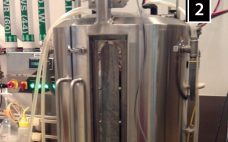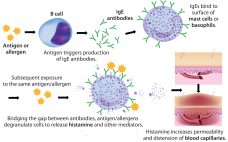Use of disposable bioreactors in the biopharmaceutical industry has increased gradually over the past several years in pilot, clinical, and production scale facilities (1–4). Reduced time to market in today’s drug industry has created a need for cost-effective development and production strategies as well as manufacturing flexibility. When compared with traditional stainless steel equipment, disposable bioreactor and mixing systems have smaller space requirements, are portable, and come presterilized to eliminate the need for preuse sterilization procedures such as steam-in-place (SIP).…
Tuesday, September 19, 2017 Daily Archives
Polysorbates, Biotherapeutics, and Anaphylaxis: A Review
Rapidly increasing use of monoclonal antibodies (MAbs) in the treatment of neoplastic, autoimmune, and inflammatory diseases has led to a dramatic increase in hypersensitivity reactions worldwide, complicating the use of MAbs as first-line therapies and limiting patient survival and quality of life (1). The origins of anaphylaxis are not well understood, though its mechanism is fairly straightforward (Figure 1). It is usually attributed to some undefined intrinsic property or properties of a biotherapeutic — despite the fact that biotherapeutic formulations…
Process Development of Microbial Plasmid DNA: Fast-Tracking with Modular Single-Use Minibioreactors
There has been a rapid rise in the number of positive clinical outputs from clinical studies based on gene and cell therapies. This is in addition to the licensing of products such as GlaxoSmithKline’s Strimvelis ex-vivo stem-cell therapy for treatment of severe combined immunodeficiency caused by adenosine deaminase deficiency (ADA-SCID) in 2016 (1) — has led to an increase in demand for therapeutic vector manufacturing capabilities. Viral vectors are being used for an increasing range of conditions, including monogenetic conditions.…
Insulin Improves Cell Growth and Influenza Yield in a HEK293 Suspension Cell Line
In her “Ask the Expert” webcast on 21 June 2017, Aziza Manceur of the National Research Council Canada (NRC Canada) discussed the benefits of using insulin in bioprocessing. Manceur’s Presentation Canada’s NRC has research facilities across Canada covering disciplines such as aerospace, energy, mining, and medical devices. The NRC serves both the government and the private sector, working with Canadian and international clients. Manceur is based in Montreal with the cell culture scale-up team (in the human health and therapeutic…



